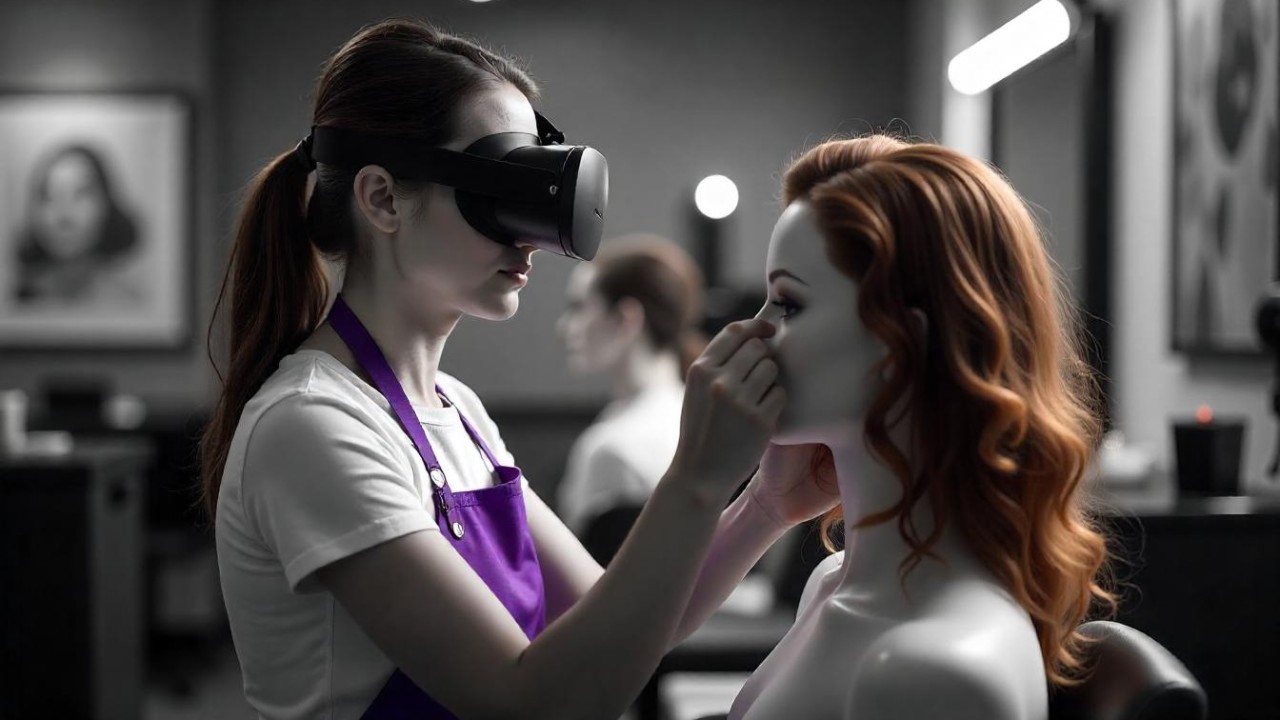Virtual Reality in Franchising: Revolutionizing Business Models
The franchising industry is evolving rapidly, with new technologies reshaping how businesses operate and interact with customers. One of the most transformative tools being integrated into franchising is Virtual Reality (VR). From enhancing training programs to creating immersive marketing experiences, VR is becoming a powerful asset for franchise owners, franchisees, and customers alike.
This article explores how VR can revolutionize the franchising landscape, offering advantages in training, marketing, customer experience, and even franchise sales.
1. Streamlined Franchise Sales Process
One of the key challenges for franchisors is selling new franchises, which often requires face-to-face meetings, physical tours of existing franchise locations, and extensive document sharing. VR can simplify this process significantly, making it easier for potential franchisees to make informed decisions without being physically present.
- Virtual Franchise Discovery Days: Instead of flying potential franchisees to the corporate office for discovery days, franchisors can use VR to host virtual versions of these events. Attendees can explore franchise models, meet the team, and even tour existing franchise locations—all from the comfort of their own home.
- Showcasing Store Layouts and Operations: VR can be used to present franchisees with virtual walkthroughs of how their future franchise location might look and function. They can explore the store layout, equipment placement, and operational flow, allowing them to envision the business with minimal guesswork.
- Reducing Time-to-Sale: By reducing the logistical barriers of in-person visits and meetings, franchisors can speed up the sales process. VR technology allows prospective franchisees to gain a deeper understanding of the business faster, shortening the time it takes to close deals.
2. Enhanced Franchise Training Programs
Training franchisees is crucial for maintaining consistency across locations, a fundamental principle in franchising. Traditionally, training involves hands-on learning at corporate headquarters or large-scale training centers, which can be time-consuming and costly. VR presents an innovative alternative that can streamline the training process and improve learning outcomes.
- Simulated Work Environments: VR can simulate a franchise’s actual operating environment, allowing franchisees to practice tasks like customer service, inventory management, and equipment use in a risk-free setting. This can help them become proficient without disrupting real business operations.
- Consistency in Training: Since training is standardized, VR ensures that every franchisee receives the same level of education and instruction, no matter their location. This is particularly beneficial for international franchises where traveling to corporate headquarters may not always be feasible.
- Cost and Time Efficiency: By reducing the need for physical materials and travel expenses, VR training offers cost-effective solutions for both franchisors and franchisees, allowing them to focus more resources on growing the business.
3. Immersive Marketing and Customer Experiences
In an increasingly competitive market, offering unique customer experiences can set a franchise apart. VR enables businesses to create memorable and immersive interactions that can boost brand loyalty and drive sales.
- Virtual Tours of Franchise Locations: Prospective customers or investors can take virtual tours of franchise locations before visiting in person. This is especially useful for high-end franchises such as hotels, gyms, or restaurants where the ambiance plays a critical role in customer decision-making.
- Product Demos and Interactive Ads: For franchises selling physical products, VR offers a way to showcase new items in a three-dimensional space. Customers can interact with the products, see them in action, and even visualize how the items fit into their own lives. VR-driven interactive ads can lead to higher engagement rates compared to traditional digital marketing techniques.
- Enhanced Brand Engagement: Through VR, franchises can engage customers with innovative promotions or experiences, such as virtual events, games, or even shopping in a virtual store. This not only boosts brand recall but also creates a stronger emotional connection between the customer and the franchise.
4. Operational Efficiency and Decision-Making
VR can also play a crucial role in improving operational efficiency for franchisees. For example, it can be used in site selection by allowing franchisees to virtually explore potential locations before making a decision. This is especially useful for global franchises looking to expand into new regions or cities.
- VR for Real Estate Selection: Franchisees can use VR to view potential locations in different cities or countries, assessing factors such as foot traffic, visibility, and space layout without needing to travel to each site. This saves time and helps franchisees make better, data-driven decisions.
- Design and Store Planning: VR can assist franchisees in designing their stores by simulating the layout of fixtures, equipment, and customer flow. This can be a significant time-saver during the build-out phase, as franchisees can identify and address potential problems before they arise.
5. Challenges and Considerations
While the benefits of VR in franchising are numerous, there are challenges to consider. The cost of implementing VR systems can be prohibitive for smaller franchises, and the technology itself may require significant investment in hardware and software. Moreover, while VR is becoming more accessible, there is still a learning curve for both franchisors and franchisees who may not be familiar with the technology.
Data security and privacy concerns also need to be addressed, especially when customer data is involved. Franchises must ensure they have robust security protocols in place to protect sensitive information.
Virtual Reality has the potential to be a game-changer for the franchising industry. By enhancing training, improving marketing, streamlining sales processes, and driving operational efficiency, VR offers a wide range of applications that can improve both the franchisee and customer experience. As the technology continues to evolve, it’s likely that more franchises will adopt VR to stay competitive in the modern marketplace.
The future of franchising is immersive, interactive, and more efficient, thanks to the transformative power of VR.




